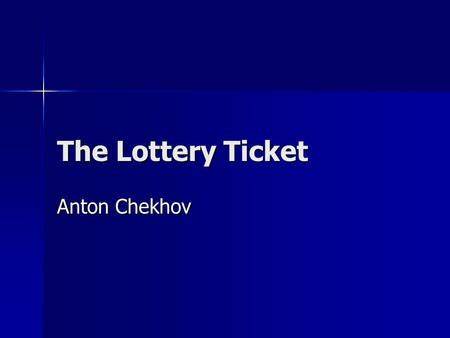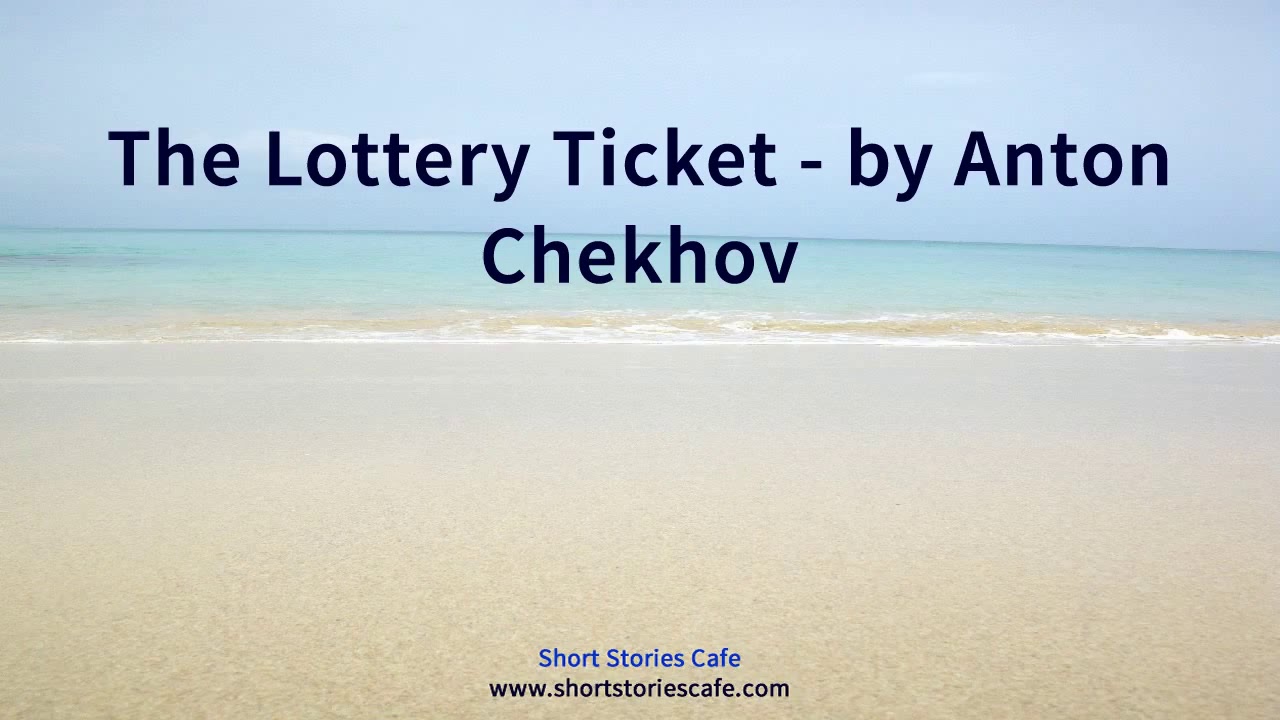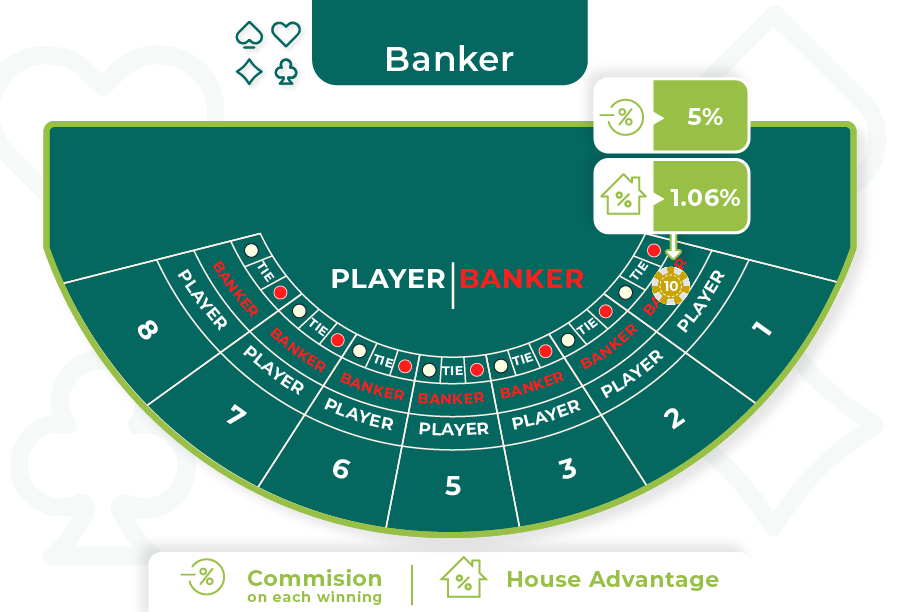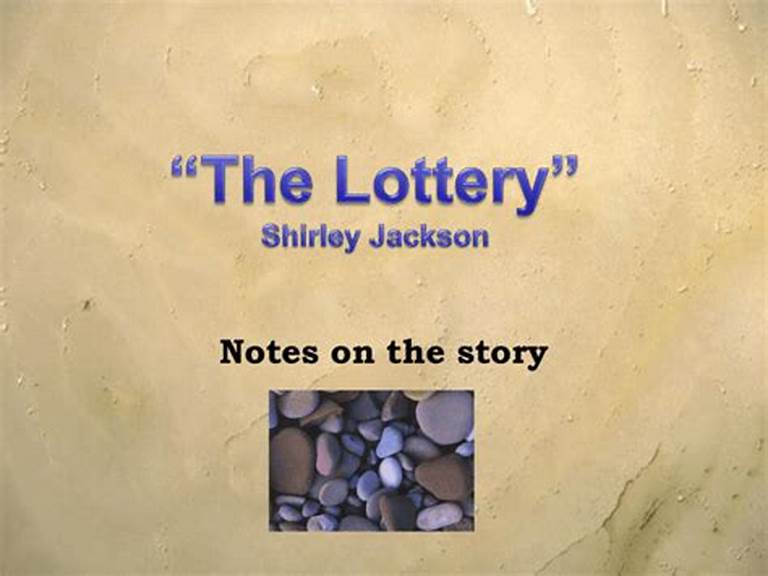Key Lessons from "The Lottery Ticket" by Anton Chekhov on Jilibet
An Academic Analysis of "The Lottery Ticket": Themes, Narrative Structure, and Socioeconomic Implications


Abstract
This article provides a comprehensive academic analysis of Anton Chekhov's "The Lottery Ticket," examining its narrative structure, thematic complexity, and the socioeconomic implications of its plot. Emphasizing key concepts such as chance, greed, material desire, and disillusionment, the study reveals how Chekhov employs subtle irony and symbolism to critique human aspirations and societal values. The analysis offers enduring insights into the interplay between personal ambition and the harsh realities of life.
1. Introduction
Anton Chekhov's "The Lottery Ticket" is a seminal short story that delves into the complexities of human desire and the transformative yet often destructive allure of sudden wealth. This analysis critically examines the narrative structure and thematic elements of the story, with a particular focus on how the lottery ticket symbolizes the ephemeral nature of hope and fortune. Key terms such as The Lottery Ticket, Chekhov, narrative structure, greed, and disillusionment are central to this discussion.
2. Contextual and Theoretical Framework
2.1 Historical and Cultural Context
Written in the late 19th century, "The Lottery Ticket" reflects the socioeconomic uncertainties and aspirations prevalent in Russian society during Chekhov's time. The story provides a microcosmic view of the human condition, where the promise of sudden wealth exposes the inherent vulnerabilities and moral dilemmas of its characters. This historical context is essential for understanding the broader societal commentary embedded within the narrative.
2.2 Theoretical Underpinnings: Chance and Greed
At its core, the story is an exploration of chance and its capacity to influence human behavior. The lottery ticket serves as a metaphor for the unpredictable nature of fortune, while the protagonist's fluctuating emotions underscore the destructive power of greed. This analysis draws on probability theory and psychological insights to elucidate how the concepts of chance and greed interplay to shape the narrative and the characters' destinies.
3. Narrative Structure and Plot Analysis
3.1 Overview of the Plot
The narrative centers on a middle-class individual whose brief encounter with the possibility of immense wealth leads to a dramatic internal transformation. As the protagonist contemplates the potential benefits of winning the lottery, elaborate fantasies emerge that promise a radical change in lifestyle and social status. However, the eventual realization that the ticket is not a winner catalyzes a profound sense of disillusionment, revealing the inherent fragility of dreams based on chance.
3.2 Structural Elements and Dramatic Progression
Chekhov's narrative is structured in a manner that accentuates the tension between hope and reality. The gradual build-up of anticipation, followed by the stark collapse of expectations, mirrors the transient nature of material desire. This progression is critical in highlighting the central themes of the story, including the corrosive impact of greed and the disillusionment that follows unfulfilled ambition. Keywords such as narrative structure, dramatic progression, and internal transformation are essential for understanding the unfolding of the plot.
4. Thematic Exploration
4.1 The Illusion of Wealth and Material Desire
A principal theme in "The Lottery Ticket" is the seductive allure of wealth and its capacity to distort reality. The lottery ticket symbolizes the promise of unearned fortune, which captivates the protagonist and leads to the emergence of grandiose yet unrealistic aspirations. Chekhov critiques the societal fixation on material success by demonstrating how the mere prospect of wealth can lead to moral and psychological disintegration. This theme is reinforced through recurring keywords such as wealth, material desire, and illusion of fortune.
4.2 Greed, Disillusionment, and Social Critique
The narrative also delves into the destructive nature of greed. As the protagonist's dreams escalate, the ensuing disillusionment exposes the pitfalls of allowing materialistic ambitions to overshadow rational judgment. This transformation serves as a powerful social critique, warning against the perils of chasing illusory gains at the expense of personal integrity and social harmony. Emphasis on greed, disillusionment, and social critique provides a deeper understanding of the story's moral framework.
5. Literary Techniques and Symbolism
5.1 Use of Irony and Subtext
Chekhov employs irony as a critical literary tool in "The Lottery Ticket." The stark contrast between the protagonist's hopeful anticipations and the eventual realization of his folly is presented with subtle irony, inviting readers to reflect on the inherent contradictions of human nature. This effective use of irony, combined with rich subtext, amplifies the narrative’s thematic impact and underscores the transient nature of hope.
5.2 Symbolism of the Lottery Ticket
The lottery ticket itself functions as a powerful symbol within the narrative. It embodies the duality of human desire—offering the tantalizing promise of wealth while simultaneously representing the risk of moral decay. This symbol serves as a constant reminder of the unpredictability of fortune and the fleeting nature of dreams, reinforcing the overarching themes of chance, wealth, and disillusionment throughout the text.
6. Conclusion
Anton Chekhov's "The Lottery Ticket" remains a profound exploration of the interplay between chance and human aspiration. Through its carefully constructed narrative, rich symbolism, and incisive character portrayals, the story critiques the ephemeral allure of unearned wealth and the destructive potential of greed. The enduring relevance of Chekhov's work lies in its ability to capture the complexities of the human condition, offering timeless insights into the consequences of materialistic pursuits.



